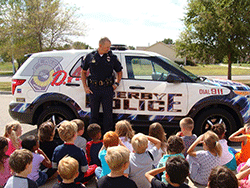
Radicalization to violence, wherever it occurs, is an emotionally charged issue. That means that any conversation about radicalization to violence is bound to be difficult, especially when initiated by a government official or the police. Whatever form that conversation takes, it can be interpreted by some people as little more than stigmatization of an entire community based upon assumptions about people, faith, and politics. People may even see any attempt to open a dialogue as a front for information or intelligence gathering.
However, difficult as it may be, the conversation is essential. Meaningful preventive responses to radicalization to violence originate from within communities; to implement these solutions, communities must understand the issue, the risks involved, and the opportunities to intervene in individual pathways to terrorism. To do that, they have to be able to talk about radicalization to violence with people who are knowledgeable, compassionate, and culturally informed.


